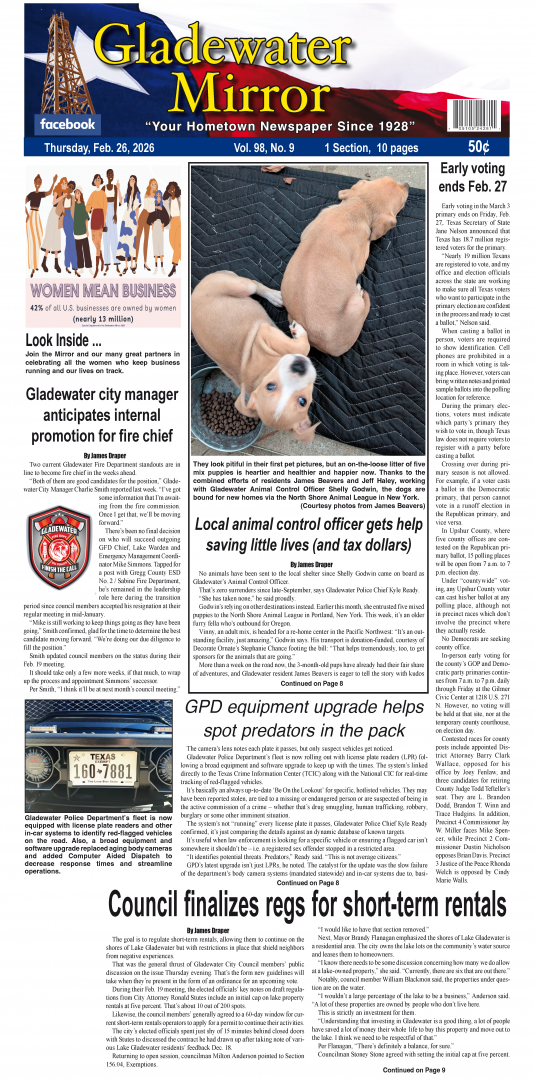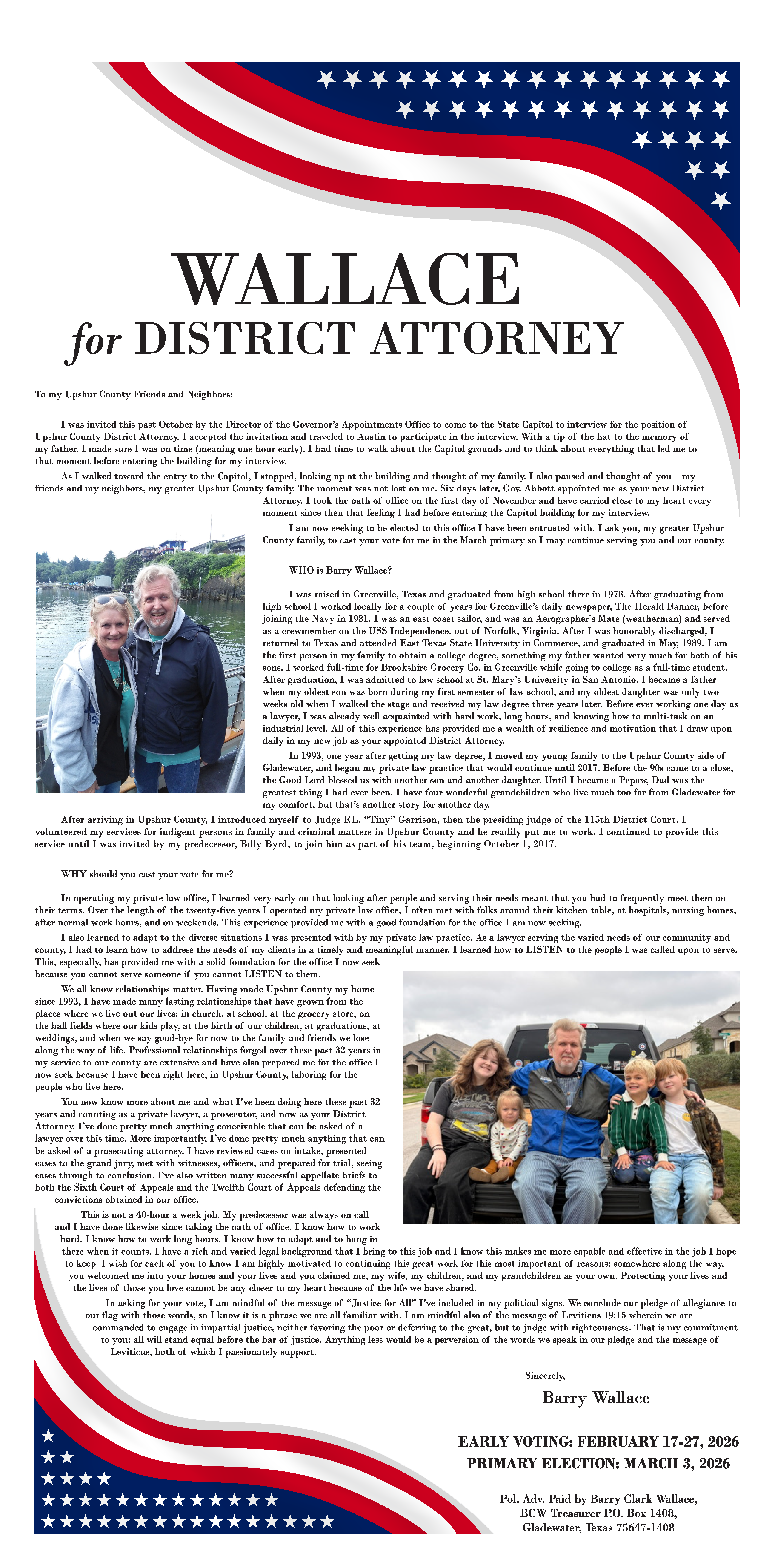After numerous edits, occasional strikethroughs and some hard pauses over the years, Gladewater’s outdoor burning rules are getting another overhaul, a new draft that hews closely to state law.
The short version: if approved by the city’s elected officials in coming weeks, except for cooking and similar small ‘recreation’ fires the only permitted burns inside the city limits will be for an individual home’s green debris and only as a carefully-regulated last resort.
Not long after local weather conditions saw burn bans lifted throughout the area, Gladewater Fire Chief Mike Simmons put a moratorium on all outdoor burning permits in his jurisdiction. Too many nuisance calls, he said. Too many illegal burns. Too many people courting a citation that could become a state jail felony.
He’s not the first local fire authority to tackle Gladewater’s guidelines, and Simmons is coordinating with other city officials and state directives to ensure this latest iteration sticks.
“I’m working on putting in all the new rules and guidelines,” he said. Once that’s finished, “It’s got to go back to council for review. After that, hopefully’ we’ll have it all finished.”
The first step is to make sure the guidelines closely follow the state’s restrictions, and Simmons is using the Texas Commission on Environmental Quality’s field guide for outdoor burning as his boilerplate to ensure Gladewater’s rules don’t contradict the Texas Administrative Code’s Outdoor Burning Rule.
In most cases, that means no burning is allowed – at all – inside corporate city limits beyond “recreational or ceremonial purposes or the noncommercial preparation of food, or used exclusively for the purpose of supplying warmth during cold weather.” It’ll still be OK to grill and sit around the firepit on a cold night.
Another exception – tightly-controlled – allows a local authority to issue permits for the burning of tree debris.
“We’re going to allow sticks and leaves that emanate from the property only,” Simmons said, “not bringing sticks and leaves from a business site to your personal property. That’s illegal.”
It’s a last resort, he repeated: residents should pursue all other options first (such as the monthly free trip to the landfill, tied to a water bill) before they apply for a permit and, if successful, pay a nominal fee before they eliminate the leaves and sticks that fall from the greenery on their property.
No permits will be – can be – issued for the burning of trash. There’s no exception in state law for it, ranging from household garbage to electrical insulation, lumber, plastics, non-wood construction materials, items containing natural or synthetic rubber and a litany of other pieces.
“We don’t have the authority to issue permits to burn trash according to state law,” Simmons emphasized. “The only time we can, the only caveat, is when we’re talking about sticks and leaves.”
Frankly, he said, illegal trash is what most people have been burning, while violating other rules in the process.
“We’re going back to what used to be done here,” Simmons added. “You contacted the fire department, the fire department would check out the plan, give you the rules and explain them, then issue a permit to burn.”
While the local regs are being rewritten, no permits are being issued at all and any outdoor burning is illegal. Enforcement is active, and though citations have been light Simmons is currently working two cases, one categorized as a state jail felony, for illegal dumping and burning.
Naturally, the pending regulations are subject to approval by Gladewater City Council members and the TCEQ.
“It’s still a work in progress, and I can’t speak on what the council’s going to say,” Simmons added. Gladewater’s elected officials may opt for no green debris burning at all. If so, “There’s lots of things that can be done outside of just burning in your front yard.
“We’re on the right track and doing the right thing, just making our city a nicer, cleaner, safer place to live.”








